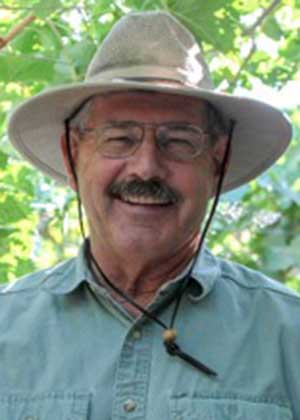
The American Pomological Society awarded the 2020 Wilder Medal, its highest honor, to David Cain, founder and chief plant breeder of International Fruit Genetics. The medal recognizes Cain’s contributions throughout his 42-year career in fruit breeding, according to an IFG news release.
Cain has developed or co-developed 94 cultivars of fruit, including 66 table grapes, 10 sweet cherries, nine plums, four apricots, four peaches and one nectarine, many of them now grown worldwide.
“This award is substantial recognition for all that Dr. Cain has accomplished and contributed to the industry over his career,” Andy Higgins, CEO of IFG, said in the release. “His vision and impact have changed the table grape industry.”
Cain founded IFG — a private breeding endeavor based in Bakersfield, California — in 2001 to carry out many of his ideas in fruit cultivar improvement. His breeding efforts are responsible for several popular table grape varieties, including: Sweet Surrender, Sweet Sunshine, Sweet Celebration, Cotton Candy and Funny Fingers. Forty-three other U.S. plant patents have been applied for or issued, according to the release.
Sweet cherry improvement was another priority in the IFG program, particularly developing cultivars for diverse environments such as low-chill locations. Cain’s research in this area has resulted in 10 cultivars thus far, including Cheery Grand, Cheery Burst and Cheery Crunch, according to the release.
Prior to founding IFG, Cain stretched his breeding efforts across a range of crops, including table grapes, plums, apricots, peaches and nectarines. He also served as associate professor at Clemson University for six years, where he expanded the scope of the scion breeding program, developed embryo rescue activities for early season peach improvement, and initiated a cooperative rootstock breeding program. His work resulted in two new peach cultivars and one peach rootstock (released after his departure from Clemson), Guardian, which has become one of the most important peach rootstocks in the Eastern United States, according to the release.
After completing his doctorate, Cain served as a research scientist with USDA’s Agricultural Research Service in Fresno, California, where he was responsible for breeding seedless raisin and table grapes, as well as grape rootstocks.
He received the 1981 Stark Award from the American Society for Horticultural Science, given in recognition of outstanding contributions to the improvement of fruit trees, according to the release.
—by Matt Milkovich






Leave A Comment